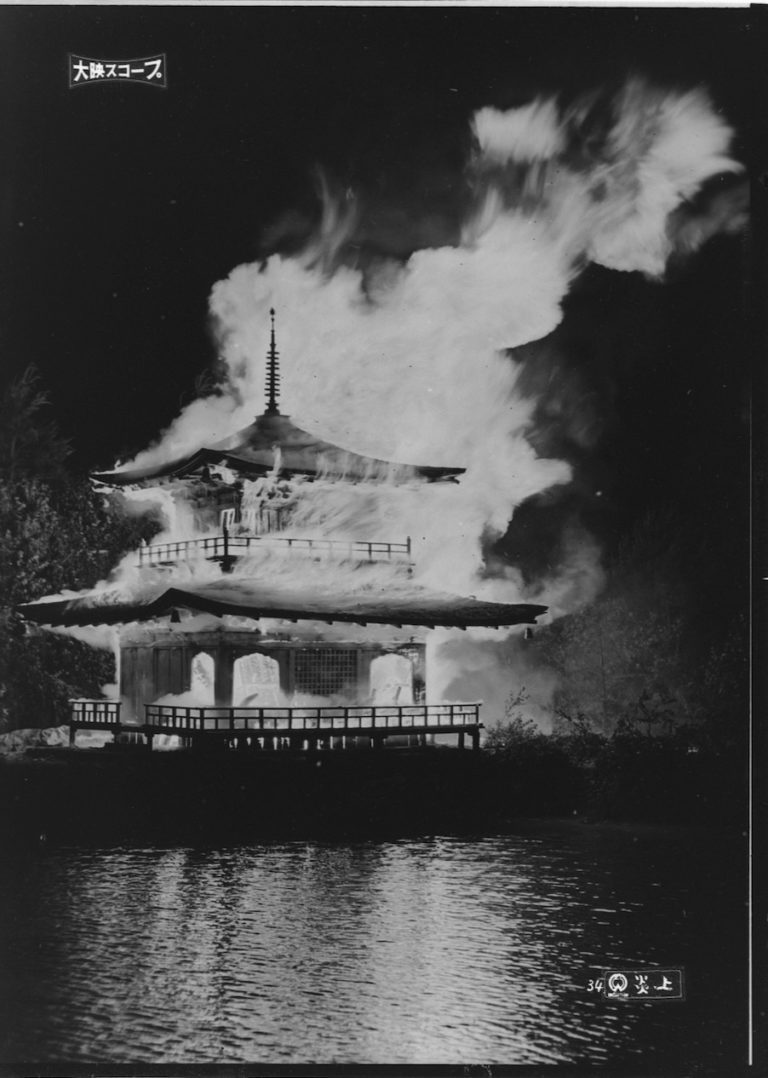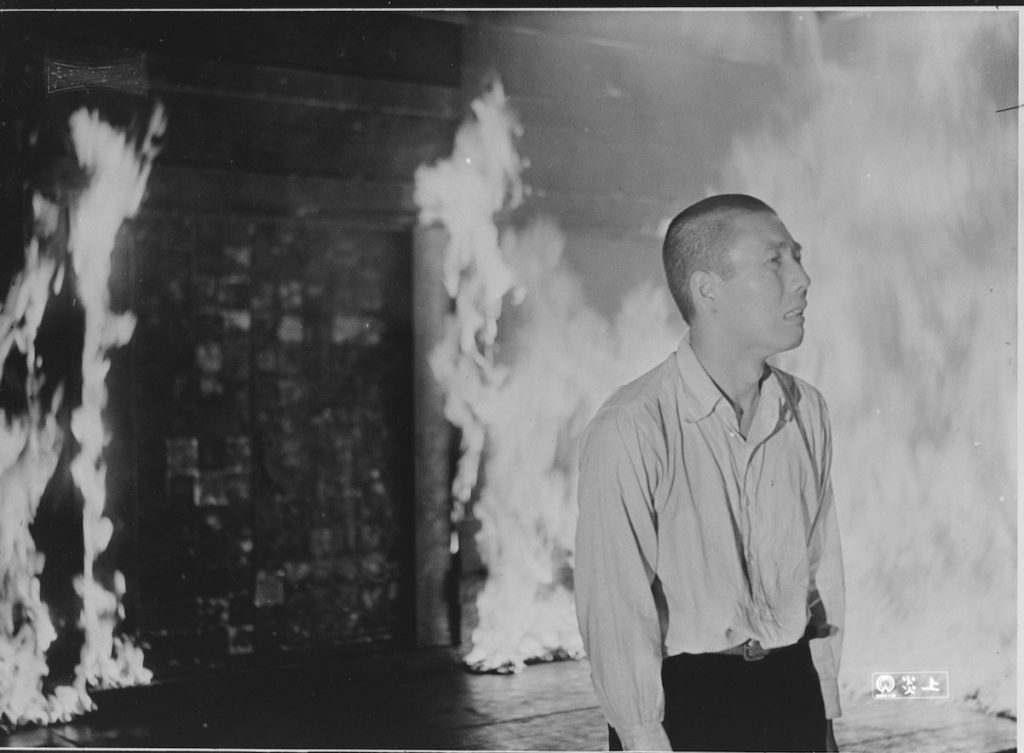
Japan Society’s autumn programme features an inspiring array of films in collaboration with the National Film Archive of Japan, with the series The Female Gaze: Women Filmmakers from JAPAN CUTS and Beyond. A great classic of Japanese cinema is being shown in this occasion, in a new 4K restoration version. The picture is Conflagration (Enjō) directed by Kon Ichikawa in 1958, born out of the constant collaboration with his wife Natto Wada, who penned the screenplay.
The film begins with a clarifying statement: it’s a fiction, not a historic account. However, it is inspired by Yukio Mishima’s novel The Temple of the Golden Pavilion, that was loosely based on true events when the Rokuonji Temple(AKA The Temple of Golden Pavilion) in Kyoto was destroyed on July 2nd 1950 by the arson caused by a novice monk named Yoken Hayashi.
Conflagration portrays the psychological breakdown of a twenty-one year old apprentice monk: Goichi Mizoguchi (Raizo Ichikawa). The introverted and earnest youngster — who has a stutter — goes to Kyoto’s Shukaku temple to overcome the trauma of his father’s death and reconcile the sacred beauty of the sanctuary with postwar reality. The only person who doesn’t mock Goichi, and actually befriends him, is Tsurukawa (Yôichi Funaki), who supports his pursuit of absolute beauty: “You have a beautiful mind,” is what he tells him. Yet, Goichi’s idealism gets distorted along his existential path as he is overpowered by utter annihilation. The shrine he so much cherishes seems to have become a sort of paid tourist attraction, the symbol of Japan’s crumbling traditions and vain attempts to conceal changes.
Thus, disgusted by how debased the temple has become Goichi feels the only pure action left is to set fire to the national treasure.
The film stands as a parable, an allegorical example of the profound contradictions of a country in South East Asia that is forcibly westernised as a result of the chaos and devastation after the defeat in the Pacific War. The film is drenched with the decadent and self-destructive spiral that overwhelms the “postwar kid” who carries out the heinous crime.
Many characters become emblematic in representing the frailties of the protagonist and the state of society’s degradation. There is Gochi’s nagging and smothering mother Aki (Tanie Kitabayashi); Tayama Dosen (Ganjirô Nakamura), the abbot of the temple who treats him like a son but entertains himself with geishas; the club-footed Tokari (Tatsuya Nakadai) who instills in the naive apprentice pessimistic ideas. Goichi’s reverence towards the Shukaku temple was nurtured by his father, who considered it the most beautiful place in the world due to its immutability. But Goichi confronts the hard way how this paradigm contrasts with reality. His crippled friend, by finding links between Zen and nihilism, forces Goichi to come to terms with a great realisation. Tokari cynically asserts there’s been a metamorphosis in society’s demarcation between good and evil: “People, history and morality changes. Anything alive changes.” These words have a devastating effect on Gochi’s mental sanity.

Conflagration opens and closes with an interrogation, cadenced by the intersection of glances between the pressing questions of the police who want to shed light on the arson story and the stubborn silence of the main character. In western culture, guilt can be relieved through confession, but in Japanese culture shame cannot be removed until a person does what society expects, which is what leads Goichi to attempt suicide.
Kon Ichikawa brings forth the various philosophical layers in the narrative with a marvellous cinematic composition, as he poetically orchestrates his cast and crew. The poignant storytelling is rendered in stunning black and white by cinematographer Kazuo Miyagawa, and the sublime partial dissolves are masterfully edited by Shigeo Nishida upon the enticing music of Toshiro Mayuzumi.
To this very day, Conflagration is a film about the way transience can ignite the “Flame of Torment” (which was one of the early versions of the title in English-speaking countries). In this way, the film is an act of timeless social criticism: a meditation on the human spirit’s adaptability to the upheavals in life.
Conflagration will be showing at the Japan Society on Nov.14th at 7pm.
Final Grade: A

